Many decades ago Martin Luther King dreamt to live in a state where everyone has equal rights. Today we dream to live in Armenia that is free from corruption today. President of the Armenian Lawyers’ Association (ALA), Coordinator of the Secretariat of the CSO Anti-Corruption Coalition Karen Zadoyan said this at the expanded working meeting of the Government-Civil Society Anti-Corruption Working Group.
 The theme of the working meeting was “Working Process on the Criminalization of Illicit Enrichment in Armenia.” “This institute is an important anti-corruption mechanism for us. We have been fighting in this area for eight years with the aim to be free from both administrative and political corruption. We are confident that with help of the public and its consistent support this institute will be launched.” Karen Zadoyan said. This struggle also resulted in the elimination of the gap between the civil society and government. “There was fictitious stereotype that the interests of the Government and CSO sector are different. We tried to overcome it. We all have the same objective. Problems should be discussed in terms of the public interest. I believe that number of carriers of these ideas shall increase and corruption will be observed as an evil like pedophilia is,” Mr. Zadoyan said.
The theme of the working meeting was “Working Process on the Criminalization of Illicit Enrichment in Armenia.” “This institute is an important anti-corruption mechanism for us. We have been fighting in this area for eight years with the aim to be free from both administrative and political corruption. We are confident that with help of the public and its consistent support this institute will be launched.” Karen Zadoyan said. This struggle also resulted in the elimination of the gap between the civil society and government. “There was fictitious stereotype that the interests of the Government and CSO sector are different. We tried to overcome it. We all have the same objective. Problems should be discussed in terms of the public interest. I believe that number of carriers of these ideas shall increase and corruption will be observed as an evil like pedophilia is,” Mr. Zadoyan said.
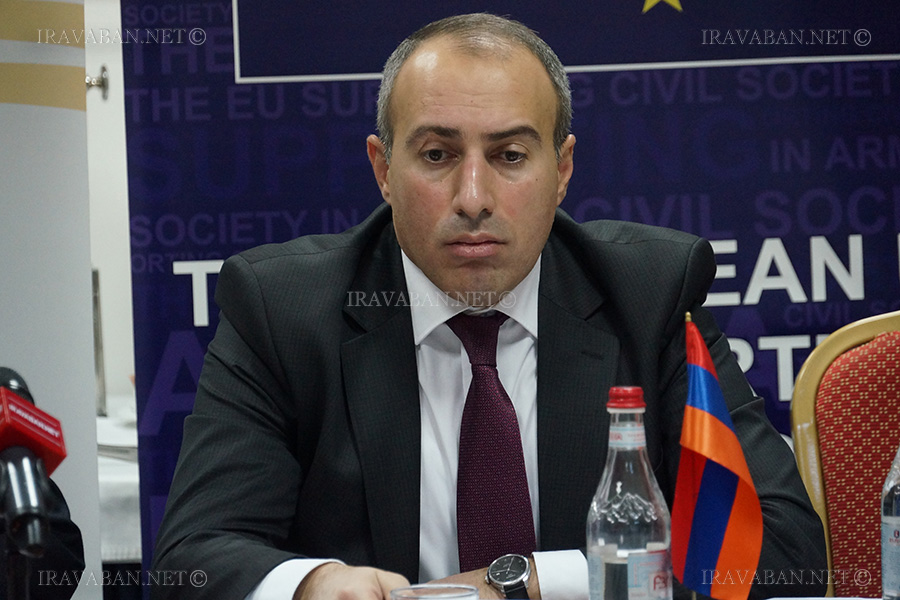 “The role of civil society in fighting corruption really is great,” Mr. Suren Krmoyan, Deputy Minister of Justice assured. He also said, “Last year in cooperation with ALA and a number of partner NGOs we initiated and created a platform, where we implemented this process jointly. As a result the criminalization of illicit enrichment was included in the Government program as one of the most important drafts. The bill has already been developed, and currently we are discussing the final version,” he said.
“The role of civil society in fighting corruption really is great,” Mr. Suren Krmoyan, Deputy Minister of Justice assured. He also said, “Last year in cooperation with ALA and a number of partner NGOs we initiated and created a platform, where we implemented this process jointly. As a result the criminalization of illicit enrichment was included in the Government program as one of the most important drafts. The bill has already been developed, and currently we are discussing the final version,” he said.
The Department expects that after the introduction of this institute, the institute of illicit enrichment shall work in all cases where corruption is not revealed. However, the deputy minister admitted that there is still a lot of work to do.
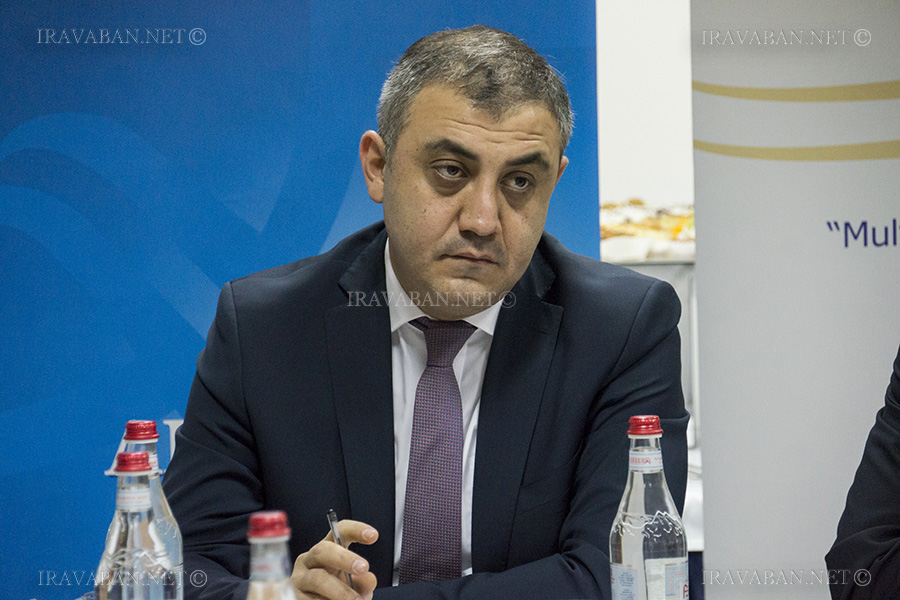 Mr. Armen Sakapetoyan, the Deputy Chairman of the RA State Revenue Committee adjunct to the RA Government said that the SRC has entered a new and in-depth stage of reforms and added that in this perspective the role of the State Revenue Committee related with the illicit enrichment is also important. “The Committee’s actions must be coordinated and continuous. To provide application of the provisions of the draft it is more realistic to develop and circulate a complete package, which shall include a mechanism for comprehensive legal regulations. Specifically, the following should be specified: the concept and components of legal revenues; reasonably justify the basic operations to be implemented as part of the term; provision of the lists of documents; definition of the rights and responsibilities, sources and data which are necessary for comparison of the information submitted by the declarant, as well as transactions related to the disclosure of bank secrecy, which is important in terms of proving the grounds for non-cash transactions,” said the official and added that SRC is willing and ready to perform the duties assigned to him in the scope of the law.
Mr. Armen Sakapetoyan, the Deputy Chairman of the RA State Revenue Committee adjunct to the RA Government said that the SRC has entered a new and in-depth stage of reforms and added that in this perspective the role of the State Revenue Committee related with the illicit enrichment is also important. “The Committee’s actions must be coordinated and continuous. To provide application of the provisions of the draft it is more realistic to develop and circulate a complete package, which shall include a mechanism for comprehensive legal regulations. Specifically, the following should be specified: the concept and components of legal revenues; reasonably justify the basic operations to be implemented as part of the term; provision of the lists of documents; definition of the rights and responsibilities, sources and data which are necessary for comparison of the information submitted by the declarant, as well as transactions related to the disclosure of bank secrecy, which is important in terms of proving the grounds for non-cash transactions,” said the official and added that SRC is willing and ready to perform the duties assigned to him in the scope of the law.
Ms. Naira Gyulnazaryan, the Coordinator of Anti-Corruption Projects at the OSCE Office in Yerevan, believes that criminalization of illicit enrichment is one of the most important tools in the fight against corruption. “Its applicability increases from year to year and different countries are adopting it,” Ms Gylnazaryan said and introduced a number of international legal documents, which is mentioned this institution.
Ms Arpine Sargsyan, leading specialist in the Anti-Corruption Policy Development Department of the RA Ministry of Justice said how the government is going to introduce this institute to the RA NA.
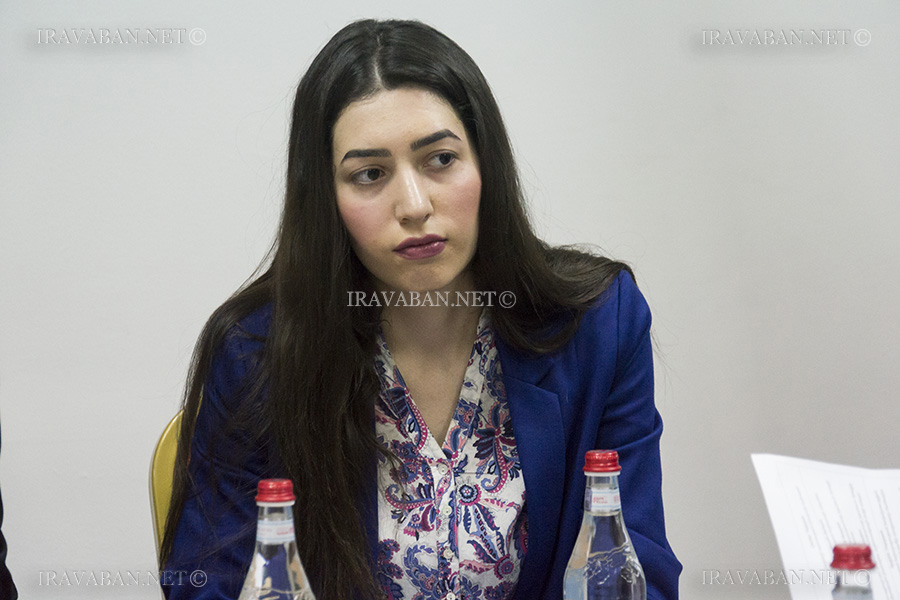 She said that at present the legislative package includes a Draft Law on making Changes in the Criminal Code, which suggests adding Article 310 in the Code. “We have provided the main manifestations of illicit enrichment, and explained the illicit enrichment with certain actions such as: the increase in property and reduction of the official’s liabilities. Who subjects of corpus delicti are: the persons who submit declaration. We also state that if there is any discrepancy between the official’s declaration, it itself cannot be substantiated. It should be noted that too small disproportions shall not be considered. Disproportions of five thousand-fold or more amounts of the minimum wages are subject to examination. The sanctions provided are: imprisonment for the term of up to 3 – 6 years, as well as confiscation of property and prohibition to hold certain posts for certain period.”
She said that at present the legislative package includes a Draft Law on making Changes in the Criminal Code, which suggests adding Article 310 in the Code. “We have provided the main manifestations of illicit enrichment, and explained the illicit enrichment with certain actions such as: the increase in property and reduction of the official’s liabilities. Who subjects of corpus delicti are: the persons who submit declaration. We also state that if there is any discrepancy between the official’s declaration, it itself cannot be substantiated. It should be noted that too small disproportions shall not be considered. Disproportions of five thousand-fold or more amounts of the minimum wages are subject to examination. The sanctions provided are: imprisonment for the term of up to 3 – 6 years, as well as confiscation of property and prohibition to hold certain posts for certain period.”
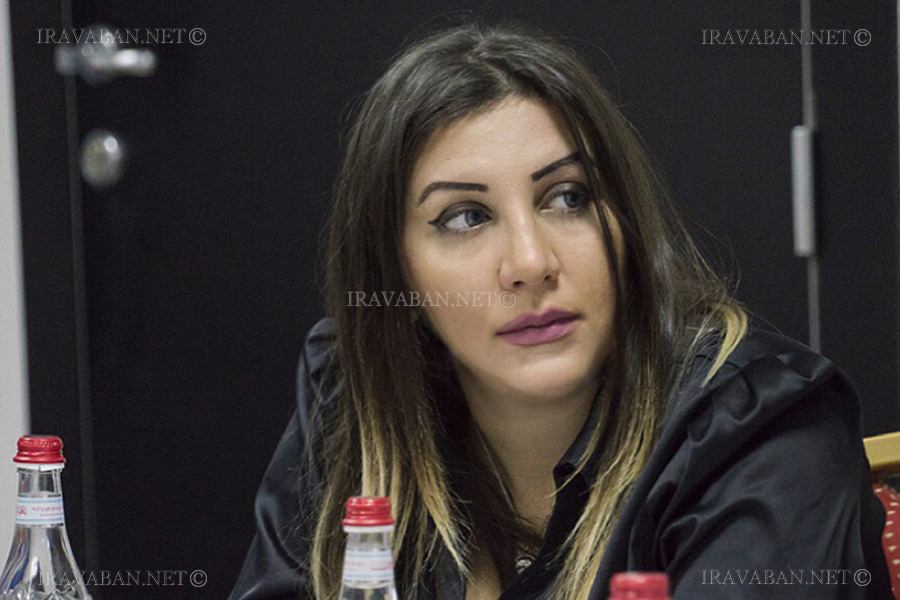 Ms. Mariam Zadoyan, National Expert of “Multi-Faceted Anti-Corruption Promotion” Project, member of the working group, spoke about the international practice and the current problems. According to her, the law enforcement bodies are obliged to substantiate the amount of income and property of the defendant on the day a person is charged with an offense; the size of the income and property that the accused had declared by the day a person is charged with an offense and the essential non-compliance. She also stressed that the draft does not provide an additional 5 year term for the operation of corpus delicti after suspension of office of the official the corpus delicti. Mechanisms of accountability of the whistleblowers in case where the officials are recognized the innocent is not provided in the draft as well.
Ms. Mariam Zadoyan, National Expert of “Multi-Faceted Anti-Corruption Promotion” Project, member of the working group, spoke about the international practice and the current problems. According to her, the law enforcement bodies are obliged to substantiate the amount of income and property of the defendant on the day a person is charged with an offense; the size of the income and property that the accused had declared by the day a person is charged with an offense and the essential non-compliance. She also stressed that the draft does not provide an additional 5 year term for the operation of corpus delicti after suspension of office of the official the corpus delicti. Mechanisms of accountability of the whistleblowers in case where the officials are recognized the innocent is not provided in the draft as well.
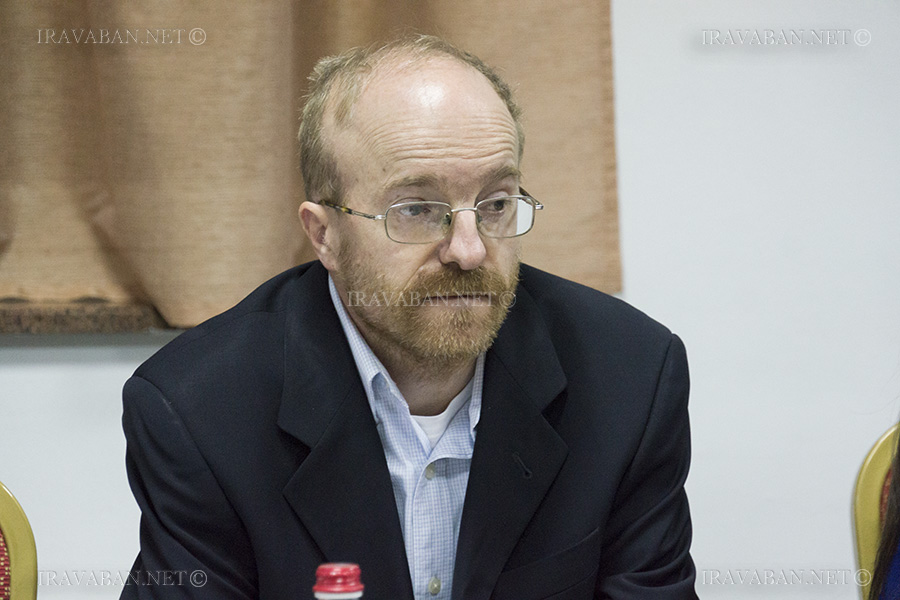
Mr. Carl Ulbricht, International Expert of “Multi-Faceted Anti-Corruption Promotion” Project recommended considering the following risks when introducing the Institute for Criminalization of Illicit Enrichment: presumption of innocence, compliance with the Constitution, right to silence and self-incrimination, probability of political persecution.
Speaking of efficiency of this institute, he said that reduction of corruption is observed in those countries (Bangladesh, India, Pakistan, and Hong Kong) which have criminalized illicit enrichment. Otherwise, corruption continues to be a threat to the states which have not criminalized illicit enrichment, such as Armenia and Russia. In addition, Mr. Ulbricht presented relevant statistics.
Further the presentations were followed by a discussion with participants.:
News
 Fight Against Corruption in Armenia
Fight Against Corruption in Armenia SMEs will receive Free Legal Assistance
SMEs will receive Free Legal Assistance Composition of the Anti-Corruption Council shall be changed։ Proposals of CSOs Anti-Corruption Coalition of Armenia are approved
Composition of the Anti-Corruption Council shall be changed։ Proposals of CSOs Anti-Corruption Coalition of Armenia are approved "Numerous Steps of the Struggle against Administrative Corruption remain Undisclosed for Citizens": David Harutyunyan
"Numerous Steps of the Struggle against Administrative Corruption remain Undisclosed for Citizens": David Harutyunyan
Events
 CSOs and Mass Media Must Play an Important Role in terms of Ensuring Transparency of the Income and Asset Declaration Institution
CSOs and Mass Media Must Play an Important Role in terms of Ensuring Transparency of the Income and Asset Declaration Institution There Is No Healthcare System in Armenia. It Is rather a System for Keeping Patients
There Is No Healthcare System in Armenia. It Is rather a System for Keeping Patients Interactive Online Map of Corruption Risks and Illicit Enrichment Cases will be created
Interactive Online Map of Corruption Risks and Illicit Enrichment Cases will be created Fight Agaisnt Corruption begins with Education: Anti-Corruption Event in Kapan City
Fight Agaisnt Corruption begins with Education: Anti-Corruption Event in Kapan City















































